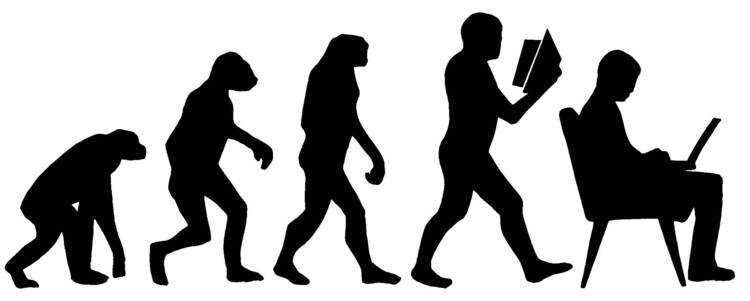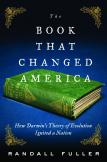Darwin’s evolution revolution
The sweeping title of this book refers to Charles Darwin’s On the Origin of Species. However, Randall Fuller does not include Darwin’s entire impact upon the United States. Rather, he focuses on how the book affected the outlooks of five intellectuals affiliated with the transcendentalist movement, which was centered around Harvard University and nearby Concord, Mass., just before the Civil War. These individuals, all given vivid character sketches in the text, were Asa Gray, Charles Loring Brace, Franklin Sanborn, Bronson Alcott and Henry David Thoreau.
In his supposition that the American conversation about the theory of evolution depended upon these elitists, Fuller produces a “top down” rather than a “grassroots” historiography. He ignores, in fact, two groups—intellectuals, including Catholics, outside the transcendental axis, and ordinary people. However, his approach can only awaken curiosity about what these other groups said in response to Origin.Further studies are certain to follow Fuller’s.
Of Fuller’s five principals, the naturalist Thoreau is the central and most haunting. Profoundly affected by Origin, he died before his responses to Darwin’s concepts of variation and natural selection could mature. Thoreau imagined creation as an ongoing process and believed that Darwin was trying to explain the same phenomenon through his science. Fuller believes Thoreau might have published extensively on this point had he not died of tuberculosis at age 45, just over two years after receiving his copy of Origin. We are accustomed to regarding Thoreau as the rugged outdoorsman of his Walden, so Fuller makes a real contribution to our sense of him by detailing his struggle to write during his long last illness.
Another drama emerged as the five pondered the possible effect of Origin on the abolitionist movement. Brace, for one, welcomed Darwin’s hint that human beings are biologically related as a powerful argument against one person enslaving another. As discussion continued, however, they began to realize that Origin also threatened their belief that America was a nation with a divine commission to regenerate the world. This realization accompanied the secession of the South from the Union and the outset of the Civil War. In time, the five transcendentalists realized that Origin threatened the very concept of God. Their discussion of Origin was lively because they correctly understood that it had both positive and negative effects on their cherished causes.
Fuller is as interested in sketching the biographies and personalities of his principals and their other associates as he is in sketching their thinking.
There is some thematic confusion in this book. Fuller is as interested in sketching the biographies and personalities of his principals and their other associates as he is in sketching their thinking. This creates confusing jumps to and fro between character sketches and summaries of philosophical points. The sheer number of people who parade through this text also provides confusion. In a second edition of this book, a glossary of the main characters and their basic biography would be helpful, as would be a dictionary of philosophical content.
Also, Fuller does not stay entirely focused on his initial five actors. There are a number of other people who receive much attention, including Bronson’s daughter Louisa May Alcott, who pondered the implications of Origin for her emerging feminism; the Harvard naturalist Louis Agassiz, a major American opponent of Darwin; transcendentalist progenitor Ralph Waldo Emerson; and others. There are cameo appearances by the likes of Concord neighbor Nathaniel Hawthorne. Some were important to receiving Origin but deter from Fuller’s stated intention to focus on just five. A rewritten introduction would clarify that this is really a book about the entire New England elite reacting to Darwin, not just a few.
There were two issues at stake in the Civil War: union and abolition. The transcendentalists undermined the former for the sake of promoting the latter. All five main characters supported, even financially, the fanatical abolitionist John Brown and his strategy of violent uprisings against slavery. They mourned and publicly memorialized Brown following his execution, proclaiming him a martyr for justice. All of them were skeptical of the Constitution of the United States, which then kept slavery legal. Abraham Lincoln argued, however, that saving the Union was essential to eliminating slavery from the United States. Thoreau died early in the war. How might the remaining four have changed their thinking about the Union during the remainder of the conflict?
Evolution offered the potential for fresh thinking about the Constitution as well as abolitionism.
Evolution offered the potential for fresh thinking about the Constitution as well as abolitionism. The Constitution has an amendment process and allows judicial interpretation. The founders expected that later generations would want to make their own additions and interpretations to it, as indeed the Civil War generation did with three new amendments. Call it creation or call it evolution, there was a renovation of the Constitution during the Civil War. Did the transcendentalists participate? There are only two references, both passing, to the Constitution in Farrell’s index. Would a longer-lived Thoreau have turned his reflections to this matter?
Transcendentalism was very incarnational in its thinking, imaging a union of the divine and physical matter. During the period covered by this book, Massachusetts emerged from nativism and chartered the Catholic College of the Holy Cross in 1865. By producing thought that resembled Catholic insight, did the Protestant transcendentalists have an impact on this last change?
One final point. Fuller does not say much about Catholicism. Yet transcendental thought resembles Catholicism in being very incarnational. Massachusetts, which was very nativist in the 1850s, chartered a Catholic college by the end of the Civil War. Did transcendentalism assist that reconciliation?
This article also appeared in print, under the headline “Darwin’s evolution revolution,” in the June 26, 2017, issue.











